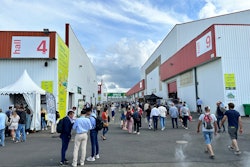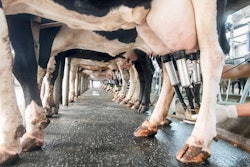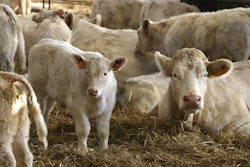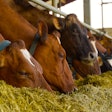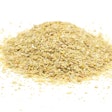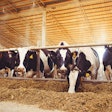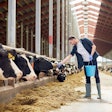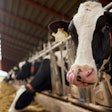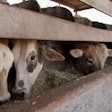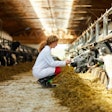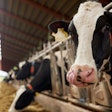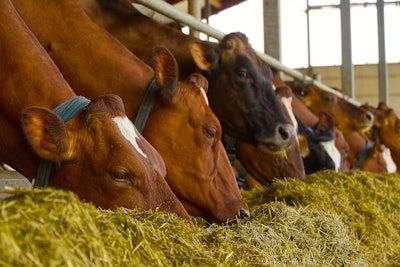
Lactating cows fed low-protein diets to reduce nitrogen emissions may require supplemental amino acids — specifically histidine, according to ongoing work at The Pennsylvania State University.
Reduced-protein diets typically reduce emissions of nitrogen, nitrates and ammonia from manure — emissions that degrade air and water quality. As the availability of protein from feed declines, cows become more reliant on amino acids produced by microbes in the rumen, according to Alexander Hristov, a distinguished professor of dairy nutrition at Penn State. And this microbial protein, Hristov said, appears to be low in histidine.
Without adequate histidine, dry matter intake and milk production begin to suffer, Hristov said.
Limited milk production from inadequate histidine is a known issue that appears in early Northern European studies of cows fed primarily grass silage-based diets, Hristov said. But Hristov's team first noticed the problem in studies of reduced-protein diets a few years ago. The university has since conducted a series of tests that confirm the finding, which also appears in a series of independent studies reviewed in a meta-analysis published by Hristov's team last fall.
Penn State plans to conduct further trials to test histidine levels in transition cows.
“The work has been done so far with mid-lactation, but not fresh and early-lactation cows,” Hristov said. “That's a time period when protein needs are critical.”
Although the research work is still ongoing, Hristov said he would recommend that dairy farmers who plan to feed their cows low-protein diets carefully consider histidine supply. The issue, he said, is that supplemental rumen-protected histidine is not available to commercial producers. Because histidine is not an amino acid that is added to chicken or pig diets, there is no commercial-scale production of rumen-protected histidine, he said.
If there is demand for rumen-protected histidine by nutritionists and dairy farmers, it is likely that commercial-scale production of histidine would follow suit and prices would fall to manageable levels, Hristov added.


